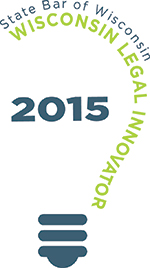The legal profession’s future is on many minds these days. Here are a few reasons: the potential for a regional or even global practice because of technology and communication; the rise of low-cost or free access to statutes, case law, and forms services such as LegalZoom; recent law school graduates’ difficulty finding jobs; the incursion by other professions into what many consider the traditional practice of law; ownership of law firms by nonlawyers; the creation of licensed nonlawyer legal professionals; and the development and promulgation of ethics codes by the executive branch of government.
Whew! And those were just the ones off the top of my head.
Not all these developments are occurring in the United States; some are still confined to Europe or Australia. But many are coming this way. Last summer, the Canadian Bar Association endorsed nonlawyer ownership interest in law firms, a development that began in Australia more than 15 years ago and in England and Wales a few years ago.
At a recent gathering of the National Conference of Bar Presidents, hundreds of state and local bar presidents learned more about these issues. The audience’s response was disheartening but not surprising. Lawyers are trained to value precedent, to, in effect, look back to look forward. This allows for the slow, steady maturation of the law and provides predictability to lawyers and the public. But what it does not do is give a profession the tools to deal with today’s unprecedented conditions.

Tell Us!
Tell us your story about legal innovation in Wisconsin. Nominate a 2015 Wisconsin Legal Innovator, at ThatsaFineIdea.com. Deadline: June 30.
Mostly what was expressed was resistance, to the point of one panelist declaring that the profession is doomed. In his 3 Geeks and a Law Blog, Toby Brown, the chief practice officer at Akin Gump in Houston, noted that he came away so discouraged that he fears that “the rule of law will be handed off to someone else” (for example, insurance companies or banks) without the ethical obligations that lawyers carry.
I share the same concern, because I have seen the same resistance over the years, sometimes from Wisconsin lawyers, sometimes from lawyers in other states. I used to say that my fear is that by the time my grandchildren reach my age, lawyers will be mere scriveners in the basements of courthouses. The codicil today is that I fear it will happen sooner than that.
But it isn’t all doom and gloom. Positive change and innovation is happening, but slowly and on a small scale. Through “That’s a Fine Idea: Legal Innovation in Wisconsin,” the State Bar is showcasing members’ stories of positive change in Wisconsin’s legal landscape to encourage more of it.
Change must be seen as challenge, as opportunity. Resistance, just saying “no,” won’t stop change any more than it stopped people from using drugs. I believe it is the obligation of law schools and bar associations to equip lawyers to welcome the challenge that change brings so that change does not instill resistance or fear, but opportunity.
Otherwise, Pogo will have been correct when he said, “We have met the enemy, and he is us.”
